I understand the placement new operator allows to construct object at a particular/specific memory location. So i tried this;
#include <iostream>
#include <new>
using namespace std;
struct Any {
int x;
string y;
};
int main() {
string mem1[1];
int mem2[5];
Any *p1 = new (mem1) Any;
Any *p2 = new (mem2) Any;
p1->y = "Hello";
//p2->x = 20;
cout << p1->y << endl;
//cout << p2->x;
return 0;
}
What I realized is, I can set a string to a location that I've set aside to hold exactly 1 string but i can't do same for an integer like so;
int mem2[1];
Any *p2 = new (mem2) Any;
p2->x = 20;
I get a buffer overflow error even though it manages to show me the value I placed in that location which is 20;
Why?
Also, with my full code shown above, I have set aside 2 different memory locations to hold the 2 objects which makes p1->y print without any problems. But when i reduce this location
int mem2[5]; to any number below 5 which i think has nothing to do with the location where I placed the string and try to print the string, I get a segmentation fault error. Why >= 5? Does it have to do with memory available?
Is there a way to check if using the placement new operator to place an object at a specific memory location was successful?
